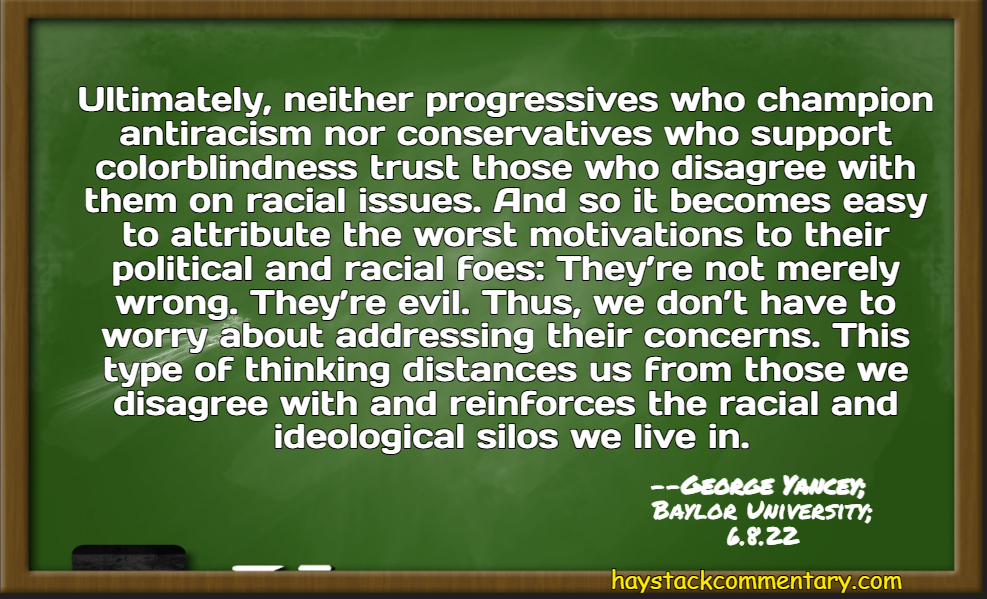George Yancey |
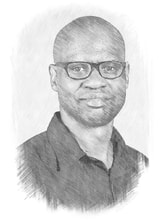
George Alan Yancey (born September 8, 1962) is an American professor of sociology at the Baylor University, where he has taught since 2019. He is known for his research on anti-Christian attitudes in the contemporary United States, and the ways in which it can influence the decisions made by academic sociologists. He has been called "the only researcher studying Christianophobia at a secular university".
Yancey is a supporter of the American Solidarity Party
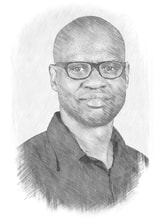 George Yancey Files
George Yancey Files
“Have you noticed our unhealthy cycle of racial controversy in the United States? It goes like this: We have a racial incident, such as a police shooting of an African American, and then we have a series of protests demanding justice. After a while there are counterprotests and pushback from those who consider the demands of the protesters to be unreasonable. Finally we return to some kind of normalcy and wait for the next racial incident to start the cycle all over again.”
--Dr. George Yancey; Beyond Racial Division: A Unifying Alternative to Colorblindness and Antiracism
“Have you noticed our unhealthy cycle of racial controversy in the United States? It goes like this: We have a racial incident, such as a police shooting of an African American, and then we have a series of protests demanding justice. After a while there are counterprotests and pushback from those who consider the demands of the protesters to be unreasonable. Finally we return to some kind of normalcy and wait for the next racial incident to start the cycle all over again.”
--Dr. George Yancey; Beyond Racial Division: A Unifying Alternative to Colorblindness and Antiracism
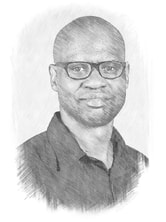 George Yancey Files
George Yancey Files
"There is a lot of literature on hostility toward many different groups but just about none on hostility toward Christians. Yet when we collected qualitative data from cultural progressive activists we quickly saw some of the unnecessary vitriol and fears within many of our respondents. We also saw the social status of those who exhibited this hatred and many of them would be in positions that allowed them to at least subtly act on their anger and fears. That motivated us to take a more systematic look at Christianophobia and speculate on how this phenomenon influences certain social aspects in the United States.
Another aspect that drove me to work on this project was that while I consistently saw evidence of Christianophobia in other areas of my life and in our society, unlike other types of intolerances, those who exhibited Christianophobia do not tend to think that they are intolerant. Usually those who do not like blacks or Muslims admit that they are intolerant but simply try to justify their intolerance. Those with Christianophobia tend to deny that they are intolerant but rather that they are fairly interpreting social reality. Envisioning themselves as fair and free of intolerance allows them to blame those they detest rather than recognize how their emotions have distorted their intellectual judgments."
--George Yancey
Another aspect that drove me to work on this project was that while I consistently saw evidence of Christianophobia in other areas of my life and in our society, unlike other types of intolerances, those who exhibited Christianophobia do not tend to think that they are intolerant. Usually those who do not like blacks or Muslims admit that they are intolerant but simply try to justify their intolerance. Those with Christianophobia tend to deny that they are intolerant but rather that they are fairly interpreting social reality. Envisioning themselves as fair and free of intolerance allows them to blame those they detest rather than recognize how their emotions have distorted their intellectual judgments."
--George Yancey
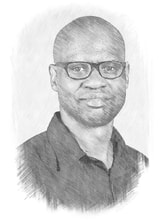 George Yancey Files
George Yancey Files
It’s easy to hold people accountable when you disagree with them. It’s much harder to do so when you agree with them 90 percent of the time. Nevertheless, if individuals act in dehumanizing ways to others, we can’t support that even if we otherwise agree with their politics or priorities. In an appropriate way, you must confront them and challenge them to do better. You certainly shouldn’t provide social media approval through “likes” to statements that erode trust.
Mistrust is a great tool for those who want to sow discord—because of our depravity, we’ll always find reasons not to trust the outgroup. As Christians, we must do better. We’re called to love others as we love ourselves. We must fight against automatically mistrusting those with whom we disagree. In the body of Christ, we need an atmosphere where we can admit our own shortcomings and forgive others for their mistakes.
When we do that, we can seek out where we agree with others and build on that. Instead of staying in our foxholes and firing ammo at each other, we can, little by little, climb out and encourage those on the other side to do the same. Wouldn’t it be great if we one day met in the middle and embraced one another rather than attacking? --George Yancey; Gospel Coalition; Build Trust for Better Race Relations 6.8.22
Mistrust is a great tool for those who want to sow discord—because of our depravity, we’ll always find reasons not to trust the outgroup. As Christians, we must do better. We’re called to love others as we love ourselves. We must fight against automatically mistrusting those with whom we disagree. In the body of Christ, we need an atmosphere where we can admit our own shortcomings and forgive others for their mistakes.
When we do that, we can seek out where we agree with others and build on that. Instead of staying in our foxholes and firing ammo at each other, we can, little by little, climb out and encourage those on the other side to do the same. Wouldn’t it be great if we one day met in the middle and embraced one another rather than attacking? --George Yancey; Gospel Coalition; Build Trust for Better Race Relations 6.8.22
Nov 18, 2022: Baylor University: What role can a person play in bridging racial divides?
In this Baylor Connections, George Yancey, Professor of the Social Sciences, shares insights. Through collaborative conversations, Yancey sees opportunities to find understanding. He shares the qualities of collaborative conversations, examines the impact of language and considers approaches to racial discussions that go beyond colorblindness and antiracism.
In this Baylor Connections, George Yancey, Professor of the Social Sciences, shares insights. Through collaborative conversations, Yancey sees opportunities to find understanding. He shares the qualities of collaborative conversations, examines the impact of language and considers approaches to racial discussions that go beyond colorblindness and antiracism.
Aug 24, 2022: Christian Post: Baylor scholar: 'Anti-racism' movement doesn't take seriously 'human depravity among people of color'
A Christian sociology professor who has researched “anti-racism” ideology says the movement, however well intended, fails to take into consideration the sinfulness of all human beings, including people of color.
George Yancey, professor at the Institute for Studies of Religion and Sociology at Baylor University in Waco, Texas, told The Christian Post that while he believes the anti-racism movement is an honest attempt to deal with America’s “institutional and structural racial issues,” he prefers to talk about a “racialized” society rather than a “racist” society.
A Christian sociology professor who has researched “anti-racism” ideology says the movement, however well intended, fails to take into consideration the sinfulness of all human beings, including people of color.
George Yancey, professor at the Institute for Studies of Religion and Sociology at Baylor University in Waco, Texas, told The Christian Post that while he believes the anti-racism movement is an honest attempt to deal with America’s “institutional and structural racial issues,” he prefers to talk about a “racialized” society rather than a “racist” society.
Oct 24, 2021: Beyond Racial Division: A Conversation With Sociologist George Yancey
Is antiracism the antidote to racial and cultural division in our country? Dr. George Yancey says there’s a better way.
Is antiracism the antidote to racial and cultural division in our country? Dr. George Yancey says there’s a better way.
Aug 11, 2021: Patheos: Who Will Be Saved? ; The Question That Divides Evangelicals from Mainline Protestants
While one can find mainline Protestants who hold exclusivistic views of salvation and evangelicals who are very inclusivistic and pluralistic (and maybe even universalist), in general I think that those who hold strongly inclusivistic views will find evangelicalism an increasingly uncomfortable theological fit, while those who hold exclusivistic views will eventually decide to break with mainline Protestant churches if they have not already.This distinction also offers a clue to an evangelical view of politics that George Yancey noted; and that I hope will gain wider attention.
While one can find mainline Protestants who hold exclusivistic views of salvation and evangelicals who are very inclusivistic and pluralistic (and maybe even universalist), in general I think that those who hold strongly inclusivistic views will find evangelicalism an increasingly uncomfortable theological fit, while those who hold exclusivistic views will eventually decide to break with mainline Protestant churches if they have not already.This distinction also offers a clue to an evangelical view of politics that George Yancey noted; and that I hope will gain wider attention.
Nov 6, 2016: George Yancey: The Stream: Has the Southern Poverty Law Center Finally Jumped the Shark?
"I HAVE BEEN CRITICAL OF THE SPLC IN THE PAST. I FOUND THAT THEY SELECTIVELY USE A SLIPSHOD METHODOLOGY TO IMPUGN THE REPUTATIONS OF POLITICAL ENEMIES. IT IS NOT TRUE, AS SOME SUPPOSE, THAT ONLY CONSERVATIVES FIND THEIR WAY UNTO THEIR HATE LISTS. INDEED CERTAIN BLACK RADICALS AND SEPARATISTS ALSO HAVE BEEN MARKED AS HATEFUL. SOMEHOW, THOUGH, THE SPLC HASN’T BEEN ABLE TO FIND ANY EXAMPLES OF WHITE PROGRESSIVES BEING HATEFUL. I’VE BEEN ABLE TO FIND SUCH EXAMPLES (DOCUMENTED HERE AND HERE) BUT WHITE PROGRESSIVE HATRED SEEMS MYSTERIOUSLY NONEXISTENT TO THE SPLC. EVEN THEIR LATEST ADDITIONS ARE PEOPLE OF COLOR. THE REASON, I SUSPECT, IS THAT BEING AN ORGANIZATION THAT CATERS TO WHITE PROGRESSIVES, THEY ARE BLIND TO HATRED WITHIN THEIR OWN TRIBE." GEORGE YANCEY [THE STREAM]
Aug 30, 2015: George Yancey: Black White & Gray: Myths of Christianophobia Part 4 – Christians Deserve it
Jan 29, 2015: Christian Post: Sociologists: 'Christianophobia,' Anti-Christian Hostility Infects Powerful Elite Subculture (Interview)
A small, but elite group of Americans demonstrate signs of anti-Christian hostility, sociologists David Williamson and George Yancey claim in their new book, So Many Christians, So Few Lions: Is There Christianophobia in the United States?
A small, but elite group of Americans demonstrate signs of anti-Christian hostility, sociologists David Williamson and George Yancey claim in their new book, So Many Christians, So Few Lions: Is There Christianophobia in the United States?


